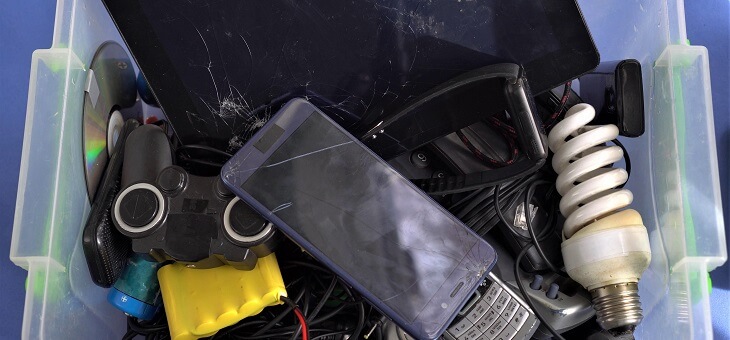Unless you haven’t been paying attention, you’ve probably noticed the appliances and gadgets we buy don’t last as long as they used to.
The answer to why this is seems obvious. The companies that make and sell these products would like to keep selling them to you. And at some point, everybody has a phone or a vacuum cleaner or a laptop.
Considering how much you pay for some of these items, knowing they’ve been designed with an expiry date is infuriating. Most consumers are willing to pay more for high-quality electronics, but it’s reasonable to expect that product is actually of high quality and will last.
Read: Eight tips to save money when shopping online
The practice is known as ‘planned obsolescence’ and has become ubiquitous in the past two decades especially.
Seeing just how short the shelf lives of some electronics truly are is shocking. The Washington Post recently analysed 14 popular consumer gadgets, some costing upwards of $2000, and found that most would be dead within three to four years.
How do they do it?
Companies limit the life of their products primarily through the item’s non-removable, rechargeable batteries.
A typical rechargeable battery can be recharged anywhere between 100 and 2000 times, depending on the size and quality.
Read: Telco fined for breaching phone scam rules
In an ideal world, once the battery was dead, it could be removed and replaced and the item would be as good as new.
But in reality, most modern electronic devices have all internal components (including the battery) soldered or glued together. This makes it not only impossible to repair, but also impossible to recycle any of the rare earth metals most electronics contain.
What’s the answer?
A good first step would be passing legislation that says batteries in electronics must be replaceable.
In 2021, the Productivity Commission’s Right to Repair report made recommendations to bolster consumer rights, promote competition for repairs and improve product information and e-waste management – which would include battery replacement.
Read: What to look for when buying a laptop
However, it stopped short of suggesting Australia enforce an actual “right to repair”. Part of this could be because Australia alone doesn’t have enough power to compel the international tech giants to change their manufacturing practices.
So, until a larger, more influential, jurisdiction legislates the change, we may be stuck with it.
But there is some hope, with the European Union recently passing new laws requiring all electronics sold there to be compatible with the standard USB-C charging cable.
This ruling will likely force the tech giants to comply, which will have flow-on effects to other markets. It shows the tech giants can make changes if enough noise is made.
Have you had to replace electronics you bought recently? What do you think should be done about it? Let us know in the comments section below.
If you enjoy our content, don’t keep it to yourself. Share our free eNews with your friends and encourage them to sign up.


I bought a 65″ Sony TV online from Sony Australia just over two years ago and it stopped working a few weeks ago. I contacted Sony even though the warranty had expired for advice on how to repair it. I was advised it would cost more to fix it than it was now worth but that they would give me a discount on a new one. That’s nice but I am still left well out of pocket after paying for a product that should last a lot more than two years and also leaves me with a very large object to dispose of. I am disgusted and will not be buying anything more from Sony Australia.